I Dig Sports

Fresh off his maiden PGA Tour victory at the 3M Open, Matthew Wolff has committed to play in his first World Golf Championships event.
The WGC-FedEx St. Jude Invitational announced Saturday that Wolff will tee it up in the July 25-28 tournament at TPC Southwind in Memphis, Tenn.
The 20-year-old Oklahoma State product, who captured the NCAA individual title in May, won in just his third professional start, eagling the final hole to beat Bryson DeChambeau and Collin Morikawa by a shot at TPC Twin Cities. The victory moved him up to No. 135 in the Official World Golf Ranking and slotted him in at No. 73 in the FedExCup standings.
Wolff, who is playing this week's John Deere Classic, plans to take next week off (unless he wins and qualifies for The Open) before ending his regular season with starts in Memphis and the Wyndham Championships. By virtue of his victory, Wolff is now a PGA Tour member and eligible for the FedEx Cup Playoffs.
As of Saturday, 10 of the top 13 players in the OWGR have committed: Brooks Koepka (No. 1), Dustin Johnson (No. 2), Justin Rose (No. 4), Bryson DeChambeau (No. 6), Jon Rahm (No. 8), Justin Thomas (No. 9), Patrick Cantlay (No. 10), Xander Schauffele (No. 11), Gary Woodland (No. 12) and Matt Kuchar (No. 13). Rory McIlroy, Tiger Woods and Francesco Molinari are the only players in the top 13 who have yet to commit. The deadline is July 19.
Tagged under
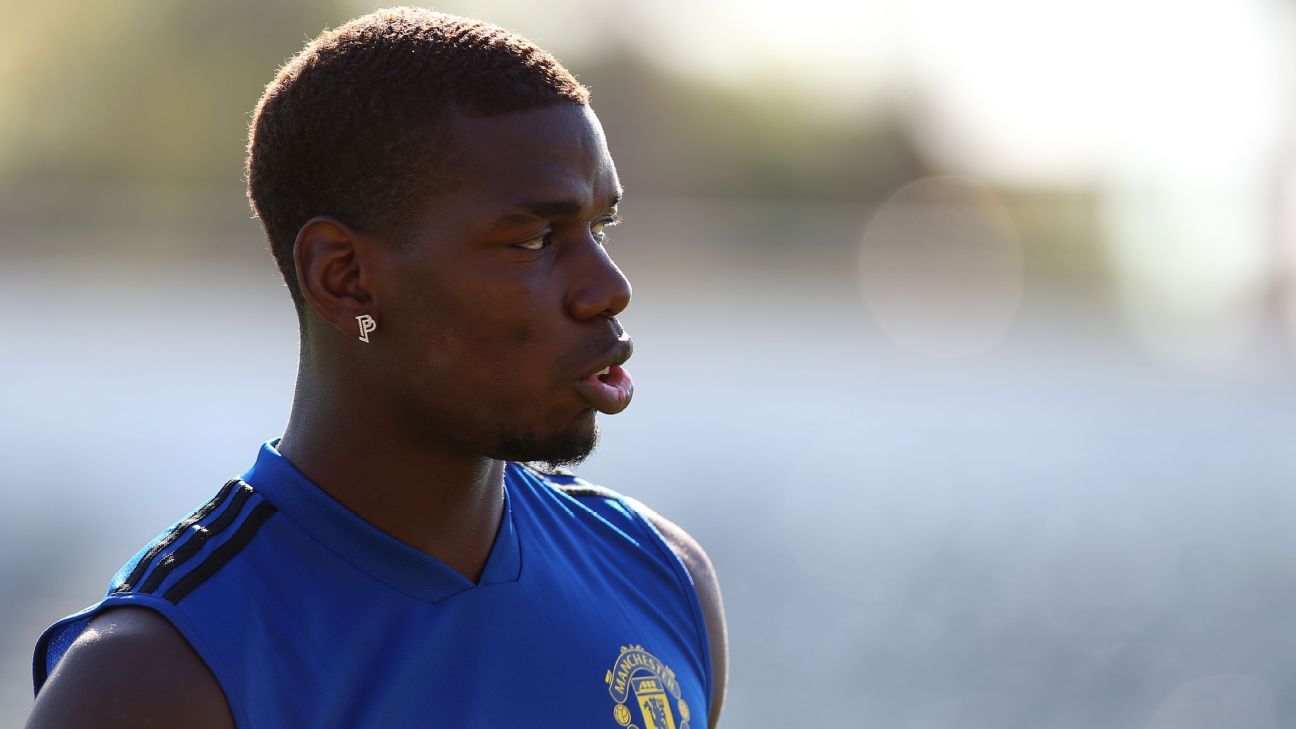
PERTH, Australia -- Ole Gunnar Solskjaer has confirmed Paul Pogba is under consideration to become Manchester United's next captain despite the midfielder saying he wants to quit the club.
Solskjaer is looking for a new skipper after the departure of Antonio Valencia at the end of season. Ashley Young and Juan Mata wore the armband during the 2-0 win over Perth Glory on Saturday but the United boss said Pogba, who has publicly claimed he is looking for a "new challenge" this summer, would be in the frame when a final decision is made ahead of the new season.
- When does the transfer window close?
- All major completed transfer deals
- Premier League fixtures 2019-20 in full
- Who has qualified for Europe from the Premier League?
- When does the transfer window close?
"We've got quite a few possibilities there and when the season starts we'll announce it." Solskjaer told a news conference at Optus Stadium.
"We'll have a good assessment and see how preseason goes. But, as you saw, Ashley will wear it when he's playing until we decide on someone."
Asked directly whether Pogba is one of the names under consideration, Solskjaer replied: "Yep."
While leaving the stadium, Pogba refused a request to clarify his situation, answering: "Who needs to talk? There's no need."
Romelu Lukaku, another player keen to leave Old Trafford this summer, missed the win over Perth through injury.
The Belgian -- who said "you will know something next week" as he walked past reporters -- is wanted by Inter Milan and Solskjaer refused to confirm whether or not the striker will still be at the club next season.
"Let's see when the season starts," said Solskjaer, who added he was "optimistic" there would be more new arrivals before the transfer deadline.
"We've not had any bids we're considering. All my conversations I will keep confidential, that's my privilege."
Solskjaer, who watched goals from Marcus Rashford and James Garner get his team off to a winning start in Australia, confirmed afterwards that Luke Shaw had been taken off seven minutes from time because of a tight hamstring.
The Norwegian also revealed that coach Mark Dempsey, who was taken ill at the team hotel on Thursday night, is set to return to England.
"Mark has been assessed and discharged," Solskjaer said.
"I've been to see him today and we've agreed it's best he'll return home now and then we'll see him when we come back."
Tagged under
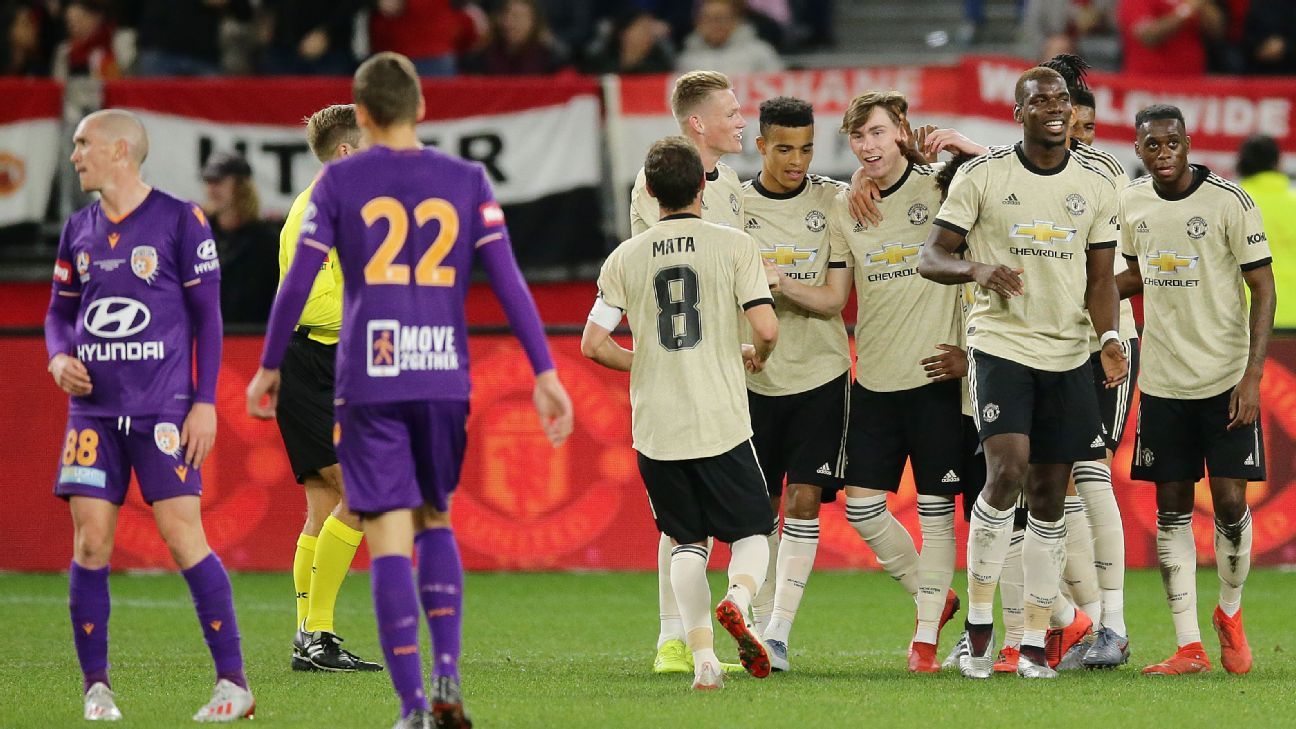
PERTH, Australia -- Manchester United got their summer tour off to a winning start with a 2-0 victory over Perth Glory.
Marcus Rashford and James Garner got second half goals at Optus Stadium while Dan James impressed in his first appearance following his £15 million move from Swansea.
- When does the transfer window close?
- All major completed transfer deals
- Premier League fixtures 2019-20 in full
- Who has qualified for Europe from the Premier League?
- When does the transfer window close?
Ole Gunnar Solskjaer had his players training the morning before the game and, apart from James, it took United time to get going during sluggish first half on a heavy pitch that staged an AFL game 24 hours earlier.
Luke Shaw, on as a half-time substitute, was forced off with an injury seven minutes from time.
Solskjaer handed James his debut in a starting XI that also included Axel Tuanzebe and Tahith Chong.
Romelu Lukaku, Victor Lindelof and Eric Bailly were left out of the squad entirely after picking up injuries -- described as "small" by United -- in training this week.
All three are expected to be fit when United return to Optus Stadium to play Leeds United on Wednesday.
After winning just two of their final 12 games last season, Solskjaer needs a fast start to the new campaign when it kicks off in August.
But if he was hoping for a statement of intent in the first game of the summer, he was made to wait. The first half drifted to an end with the score 0-0.
Ashley Young, captain from the start, came closest with a free kick that got the 50,206 crowd excited when it ruffled the side netting.
Jesse Lingard forced 37-year-old Perth goalkeeper Liam Reddy into an athletic save but that was about it.
There was nothing to worry Sergio Romero at the other end and Perth's one venture forward through Chris Harold was snuffed out by Phil Jones.
James was bright on the left despite some rough treatment from former Leeds midfielder Neil Kilkenny and then Joel Chianese.
Solskjaer swapped his entire XI at half-time -- including introductions for Rashford, Paul Pogba and new signing Aaron Wan-Bissaka -- and United were far better after the break.
Mason Greenwood nutmegged Ivan Franjic before shooting just wide after 55 minutes but it was only a temporary let off for Perth.
Just five minutes later, Rashford reacted first to Pogba's clever backheel in the penalty area and the England striker turned to shoot into the far corner.
If James was United's best player of the first half, it was fellow youngsters Greenwood, who hit the post last on, and Angel Gomes who impressed in the second.
It was also a night to remember for Garner, on as a late substitute for Shaw, after the 18-year-old midfielder smashed in United's second from 20 yards to score his first senior goal.
Tagged under
Neymar and Pogba proving that 'brand' players come with no guarantee of success
Published in
Soccer
Thursday, 11 July 2019 13:25
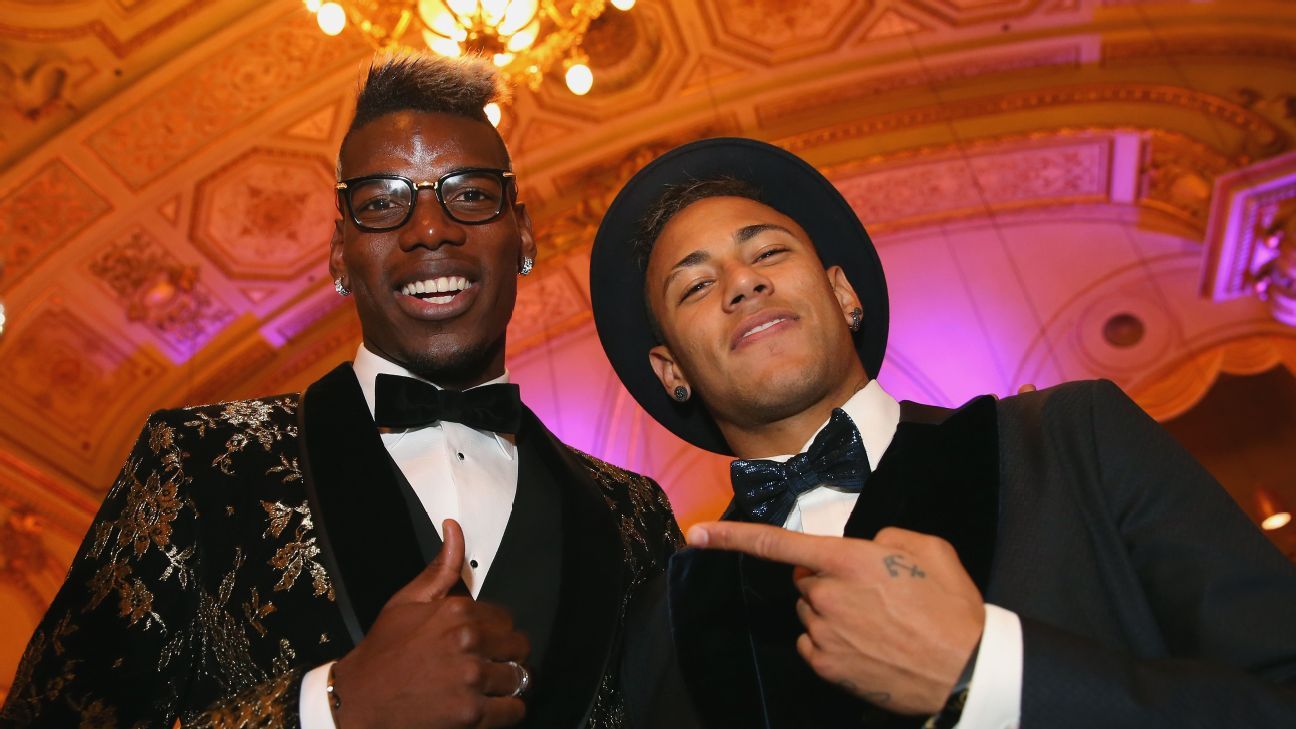
When Manchester United signed Angel Di Maria from Real Madrid for a then-British record transfer fee of £59.7 million in August 2014, research done by the club found that Google activity relating to the Argentine shot up by 1,111% on the day of his transfer compared to when he completed his move from Benfica to the Bernabeu four years earlier.
The same data also showed that searches for Radamel Falcao, on the day he sealed a loan move to United from Monaco, increased by 909% in comparison to interest in his transfer from Atletico Madrid to the Ligue 1 side 12 months prior.
- How should United respond if Pogba wants out?
- PSG say absent Neymar can leave under one condition
From United's perspective, the numbers emphasised two things. First, that they are a club that can act as rocket fuel for any player's commercial and social media profile. And second, that they can too often allow the lure of a player's "brand" to obscure the most important factor for any professional participant in a team game -- their ability to deliver on the pitch as spectacularly as they can do off it.
Twelve months after arriving at United in a blaze of publicity and social media spikes, Di Maria and Falcao were gone -- shipped out by the club after proving to be abject failures when it came to doing what they had been signed to do, which was score and create goals for the team. Di Maria didn't go quietly, either. Having failed to turn up for United's 2015 summer tour of the United States, the winger forced a move to Paris Saint-Germain and left Old Trafford with few admirers, on or off the pitch.
The stories of Di Maria and Falcao should have been a warning to United and other high-profile clubs of the dangers of allowing a player's "brand" or reputation to carry too much weight. But five years on from those moves to United, the "brand" footballer has become even more of a problem and it is not just United who are suffering the consequences this summer.
Paul Pogba, rated by SportsPro as the world's most marketable athlete of 2018, is the player giving United plenty of heartburn this summer due to he and his agent's unsubtle public statements about his desire to move away from Old Trafford.
PSG are dealing with their own high-profile superstar, Neymar, following his failure to report for preseason training earlier this week -- the Brazilian is being linked with a return to Barcelona -- while Atletico Madrid said they would fine Antoine Griezmann for his no-show before he finally secured his own move to Barca.
Pogba, Neymar and Griezmann are all world-class players with brands to match. Many at United and PSG would argue that Pogba and Neymar have underperformed and underdelivered for their teams, but if you asked those in the commercial departments at Old Trafford and the Parc des Princes, they would insist that each has been a huge success.
Pogba and Neymar are hugely recognisable figures across the globe, which is why they remain so valuable to their clubs. Atletico have also done well with Griezmann as a commercial entity -- the France forward has delivered on a far more consistent basis than Pogba and Neymar on the pitch, too -- but his self-indulgent "I am staying at Atletico" announcement last summer hinted at a player whose ego had begun to grow at an alarming rate.
Griezmann played the same card by releasing his decision to leave Atletico on social media at the end of last season, but it has since backfired to the extent that, as time dragged between the announcement and his move to Camp Nou, the 28-year-old alienated himself in the eyes of the club and its supporters.
Pogba is the subject of scorn on a daily basis from supporters and former players alike as a result of his actions surrounding his United future this summer, while PSG sporting director Leonardo has admitted Neymar can leave for the right offer due to the French club running out of patience with the 27-year-old.
But there is also a sense of reaping what you sow with Pogba and Neymar.
United have long made it clear that a player's commercial power matters at Old Trafford, with Richard Arnold, the club's managing director, claiming as far back as 2012 that United have a squad of "25 George Clooneys."
"Our games are shown in 1.1 billion homes across the globe and you think "which film does that 60 times a year?" Arnold added. "Be it George Clooney or Brad Pitt, what is there where that is shown? There just isn't anything like it."
PSG, meanwhile, when they signed Neymar from Barcelona for a world record £198m in August 2017, admitted the deal was as much about making a statement of their intention to grow as it was about winning trophies, saying Neymar's "arrival into the Paris Saint-Germain family emphasises more than ever the club's aims to rise to the top of world football."
From a purely football perspective, you have to question whether all of the commercial uplift and brand awareness generated by signing Pogba and Neymar has really been worth it for United and PSG, respectively. And how much have Atletico benefited from helping Griezmann develop his own brand to the point where his premature pronouncements end up creating a problem for everybody connected to him?
From Di Maria and Falcao to Pogba and Neymar, there is a thread that leads to the conclusion that allowing the brand to become as important as the football rarely ends well. In other words, the short-term gain doesn't really translate to long-term success where it matters most -- on the pitch.
Tagged under
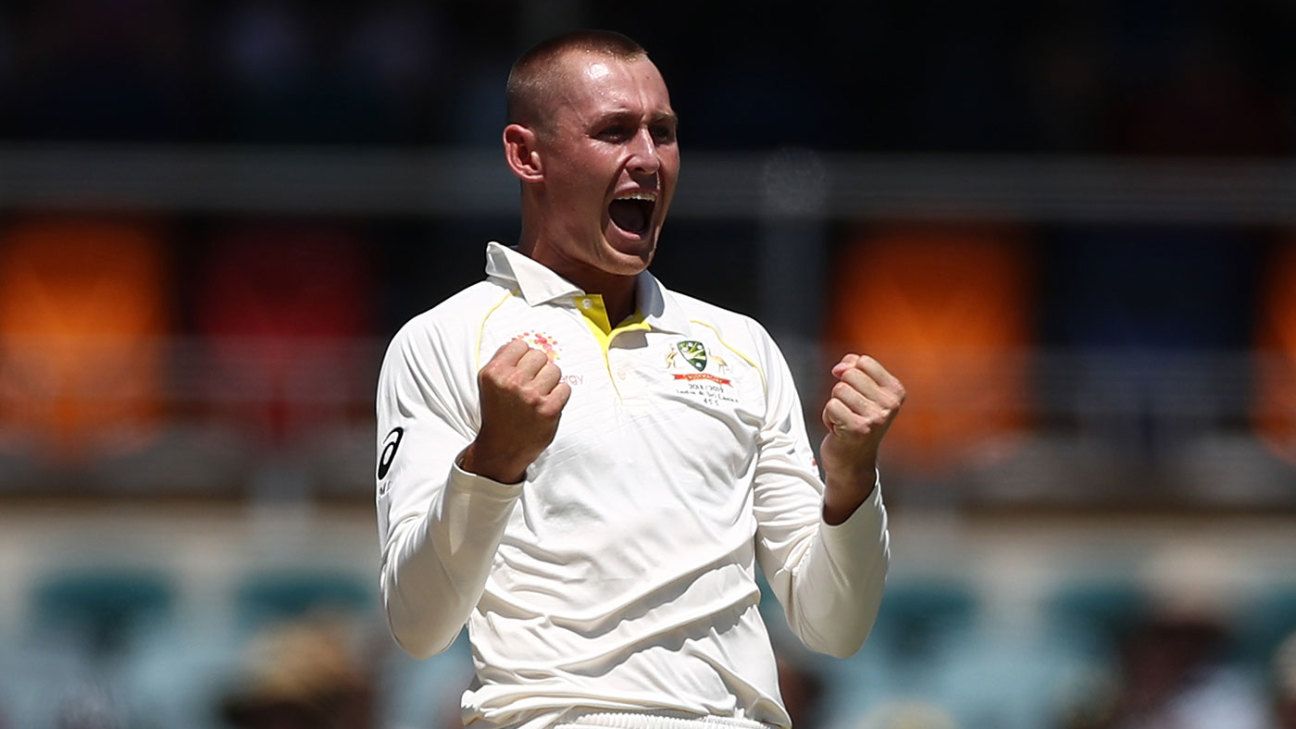
Cameron Bancroft and Marnus Labuschagne will have the chance to elbow their way into Australia's Ashes tour party. The duo are part of a preliminary 25-man squad to face-off in a warm-up game ahead of the first Test against England starting August 1. Glenn Maxwell and Marcus Stoinis are the notable absentees.
The squad will be trimmed to 16 for the series beginning August 1. Labuschagne (1057 runs at 70.46 for Glamorgan), Bancroft (698 at 46.53 for Durham) and Peter Siddle (27 wickets at 22.23 for Essex) have already presented compelling cases for selection through their performances in county cricket. If picked, Bancroft would be returning to Australia's squad alongside David Warner and Steven Smith for the first time since the expiry of their bans in the wake of the Newlands scandal.
Among other subplots will be the performance of reserve wicketkeeper Alex Carey, who by his outstanding World Cup displays has raised the possibility of being picked as a specialist batsman. The likes of Marcus Harris, Joe Burns and Kurtis Patterson will also be duelling for spots in what has now become a particularly deep field of batting candidates, also featuring Matthew Wade. The selection chairman Trevor Hohns said Bancroft's displays for Australia prior to his ban merited another chance.
"Cameron was making a fair amount of headway when he played Test cricket last for Australia and that was in South Africa," Hohns said. "I think it's been well documented that he was out leading run scorer in South Africa. What he's done is he's got on with business since he's been able to play again, he's playing with Durham in the County Championship, so he's doing everything he possibly can to get himself back into consideration and back into the Australian squad.
"He's scoring runs on a pretty regular basis so he has been included in that 25-man squad along with two other players [Labuschange and Peter Siddle]. We've nominated 25 players, 25 doesn't go into 16 so there's going to be some disappointments but all we can do is try to select a squad that we think can win the Ashes in English conditions.
"We've got all the history about what happened back home, we've got a little bit of what's going on here in England at the moment with Australia A, but it's more about the here and now and what's going to happen in the next month or so."
Hohns indicated that the squad would likely include five pacemen, a back-up spin bowler and two wicketkeepers. He also hinted that his personal preference may be for more than 16 players in the final squad. With that in mind, the role of Carey as both a back-up gloveman and also a credible extra batsman may make him doubly valuable.
"He's proving himself to be a very smart cricketer," Hohns said of Carey. "He played very well in the World Cup of course, batting wise he was very, very good, he showed calmness in a lot of different situations as well so he's been very impressive, and of course his glovework we've been very impressed with for some time now so he's progressing nicely.
"I always ask for flexibility in numbers but at the moment we're heading towards 16 at this stage and 16 I think historically has been about the right number. On the odd occasion there might've been one more. Doubtful that there's been much less for an Ashes tour, but it's quite a hectic program with five Test matches pretty close together and then of course we've got other players probably that will be included in the Ashes squad that have had quite an intense World Cup program."
The omission of Stoinis and Maxwell, who claimed four wickets for Lancashire on his post-World Cup return to cricket on Saturday, was an indicator that they have now fallen some distance away from Test calculations. "Let's put it this way," Hohns said. "We probably consider the 25 that did get chosen in this game or for this game as more in contention than those guys. It's unfortunate but that's just where we're at right here and now."
Usman Khawaja's continuing recovery from a hamstring strain will be monitored closely, though he is one the World Cup squad members now enjoying time away from the game until the 25 assemble in Southampton for the tour game. Hohns said that, having not won the Ashes in England since 2001, no compromises have been made in trying to prepare for the task ahead.
"I think the preparation has been outstanding," he said. "The organisational work that has gone into this tour, not just for the Ashes but the World Cup then straight into the Ashes and then you've got Australia A as well, we're leaving no stone unturned basically in an attempt to win the Ashes in England, and it's been a long time, there's no doubt about that.
"But I think we're in pretty good shape at the moment. England are a pretty good side there's no doubt about that, but we're in reasonable shape, particularly with Smith and Warner coming back. we're lucky right now I think to have our battery of fast bowlers fit and ready to go as well, so that's something that hasn't happened for a while when we've got a full complement of our major fast bowlers available."
Australia preliminary squad: Cameron Bancroft, Jackson Bird, Joe Burns, Alex Carey, Patrick Cummins, Peter Handscomb, Marcus Harris, Josh Hazlewood, Jon Holland, Travis Head, Usman Khawaja, Marnus Labuschagne, Nathan Lyon, Mitchell Marsh, Michael Neser, Tim Paine, Kurtis Patterson, James Pattinson, Will Pucovski, Peter Siddle, Steven Smith, Mitchell Starc, Chris Tremain, Matthew Wade, David Warner
Tagged under
Eoin Morgan relaxed about Lord's pitch that 'looks greener than it is'
Published in
Cricket
Saturday, 13 July 2019 09:35
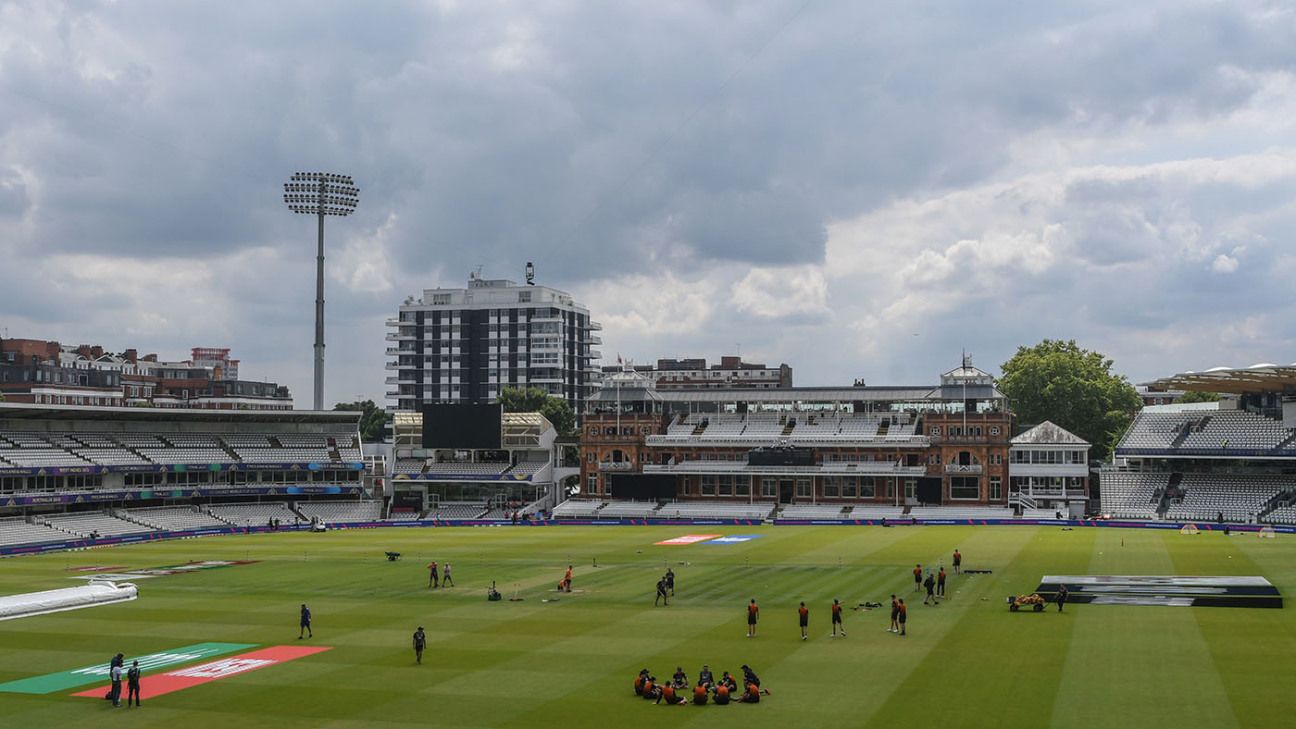
If there is one man as nervous as the two teams on Sunday morning, it will surely be Karl McDermott.
You could be forgiven for not having heard of McDermott. But he is the new Lord's groundsman having been appointed at the end of the 2018 season. And, as a result, he is the man charged with producing the surface for Sunday's World Cup final.
That surface looked, at first glance on Saturday, surprisingly green. At second glance, too. And while Eoin Morgan insisted "it looks greener than it is" and the grass will be cut again before the toss, it was a sight to have any seamer salivating.
Both teams have good seam attacks, of course. But the most obvious area where New Zealand could damage England is through Trent Boult and Matt Henry nipping the new balls around on a helpful surface. So a green pitch - one that 'plays' green, anyway - might be considered the biggest possible leveller ahead of a game in which England are the favourites.
England have made no secret of their preference for good batting tracks. So while they have a seam attack more than capable of exploiting helpful conditions - they proved that in the semi-final demolition of Australia - they also feel they have an attack capable of performing well on flat tracks. They have the pace of Jofra Archer and Mark Wood; they have the control and reliability of Chris Woakes; they have the leg-spin of Adil Rashid; they have the awkward variations of Liam Plunkett. They're not really looking for any help from the surface.
Much the same could be said of New Zealand's attack. But while their bowlers can do a decent job on any surface, if this match turns out to be a sprint between the batsmen of either side on a good batting pitch, there is only one winner. New Zealand have not reached 300 all tournament. It would surely be to their advantage if this match is played on a surface offering assistance to the bowlers. "Usually, it's a fairly fair surface here," Kane Williamson said. "But one that guys need to adapt quickly to; perhaps encouraging to seam bowlers on both sides."
Also read: Preview - It all comes down to this - and it had to be these two teams
None of this is to suggest McDermott has erred in his preparations. He has an excellent reputation - he started his career at Clontarf in Dublin and has more recently been head groundsman at The Ageas Bowl, where he produced the track used in the 2016 Test against India - and, in general, this pitch offers less assistance to bowlers than its appearance may promise. His intention, no doubt, is to ensure it has decent pace and does not dry out. There is no suggestion - quite the opposite actually - that the ICC have intervened at any stage to request more bowler-friendly surfaces in this tournament. All groundsmen have insisted they have been left to their own devices to produce the best possible pitches.
But it is, perhaps, a surface that leaves both captains with a tricky decision to make at the toss. The team batting first has won 28 of the 43 completed matches in this World Cup - and the last five ODIs at the venue - with the pressure of chasing in high-profile games (and on, at times, deteriorating pitches) proving stifling. And while Australia put on 123 for their first wicket here when England inserted them in the group stages a couple of weeks ago, they had to come through a torrid first hour to do so. Had England's seamers bowled just a little fuller - and, to be fair, had Australia's batsmen not been so resilient - they may well have made match-defining breakthroughs in those opening overs.
They may also be mindful of the ODI between England and South Africa here two years ago. After 30 minutes of that game, England were 20 for 6 and the match was as good as over. England are a better, more adaptable, more intelligent side than that now, but this surface did evoke memories of that one.
The early start may be relevant, too. Domestic Lord's finals - particularly those held towards the end of the summer - earned a reputation of providing disproportionate assistance to the team bowling first. Those 10.30am starts meant the pitches retained just enough overnight dew to help bowlers in the first hour. All too often those matches were a case of 'win the toss; win the game.' There's a reason ODIs in England and Wales do not usually start before 11am. The semi-final at Edgbaston provided an echo of those days.
Morgan, who as a Middlesex player knows this ground better than most, seemed pretty relaxed about the pitch. "From afar it looks greener than it is," Morgan said. "It will look different if the sun comes out in a few hours." The sun didn't come out, though; not much, anyway. By the time the covers were pulled on, it still looked almost identical to the pitch used for the group game between England and Australia. If the old adage is right that you should always look up, rather than down, to judge what the ball may do at Lord's - ie, atmospheric conditions may be more relevant than pitch conditions - England may be reassured that the forecast suggests a warm and bright day ahead. Whether such sayings owe more to superstition than science is debatable.
It was telling, though, that Lord's was not among Morgan's favoured venues for this ODI team when listed recently. For while England have amassed high totals and enjoyed partisan support elsewhere (The Oval, Trent Bridge and Edgbaston were the venues he said his side most enjoying playing), no side has made 330 here since the last World Cup and, since the turn of the century, 300 has only been reached seven times.
The point of all this? England have built their reputation - to a large extent, anyway - upon amassing vast totals on flat batting tracks. There is little evidence - either historically or visually - that this is such a track. England undoubtedly have the ability win, but they may be called to adapt to the surface to do so.
Tagged under
Pubudu Dassanayake says he lost 'freedom' to work after USA secured ODI status
Published in
Cricket
Saturday, 13 July 2019 09:31
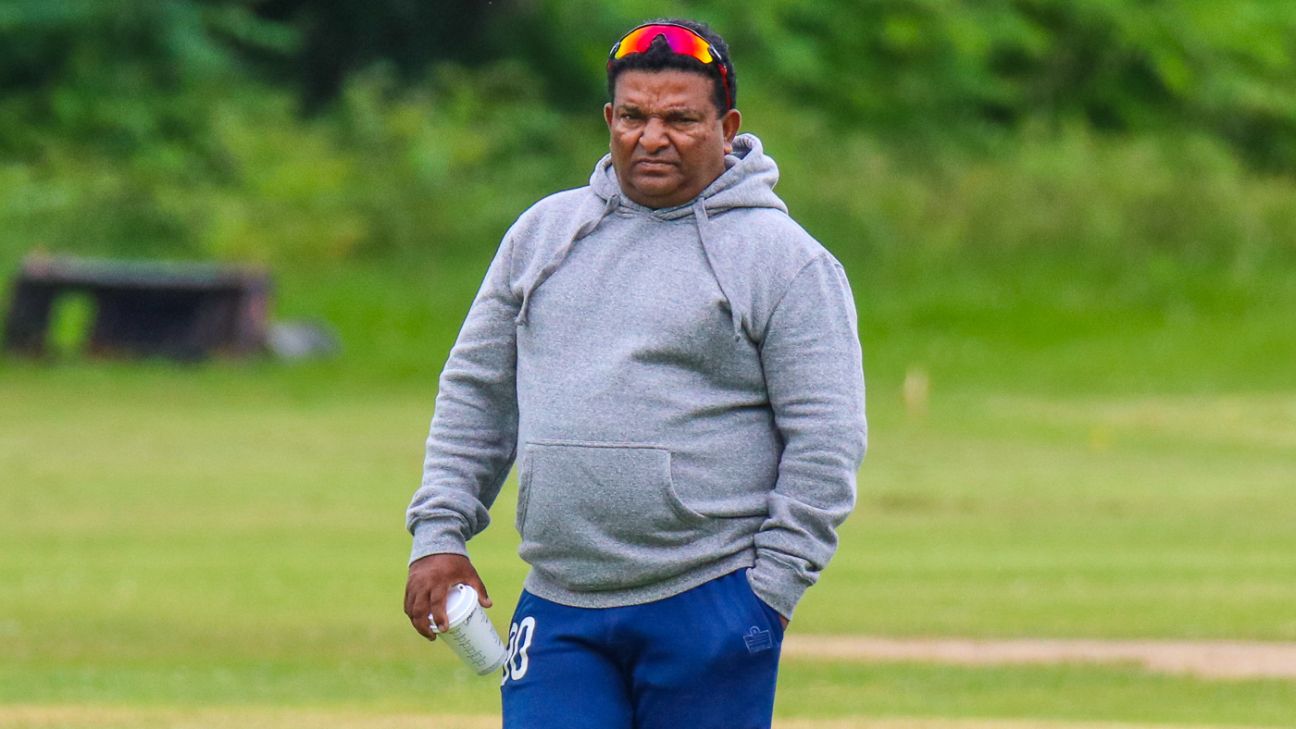
Former USA head coach Pubudu Dassanayake has said his position as head coach became untenable after his decision-making authority was stripped back with the introduction of Kiran More as USA director of cricket at a USA T20 World Cup Qualifying squad selection camp last month in Los Angeles..
"It's basically everything. We can say it one word: freedom, to work," Dassanayake told ESPNcricinfo when asked why he had chosen to resign immediately on Friday rather than staying on until the end of his contract in December. "It's been cooking for awhile. Resigning is mainly a personal decision and the reason for it is in the best interests of the national team.
"The more I stay at the moment with the new staff coming in, when they have different ideas and I have a different idea, it's hurting the team. I thought me going out, the new staff will have the freedom to move forward. I hope they'll do well and wish them well."
Dassanayake has been at the top of the totem pole in US cricket since September 2016 when he came on board as USA head coach, overseeing both the men's and Under-19 teams at the time. As such, he had a commanding presence in squad selection and the overall direction of the national team program, helping guide USA from World Cricket League Division Four in Los Angeles in November 2016 to finally achieving ODI status earlier this year at WCL Division Two in Namibia.
After achieving such a historic success, Dassanayake says he was blindsided when he showed up to June's USA national-team camp and was introduced by Atul Rai, a USA Cricket board member and head of the cricket committee for USA Cricket, to More and Kieran Powell. Dassanayake was told by Rai that he would be reporting to More as director of cricket. Prior to that, Dassanayake had mainly worked with USA project manager Eric Parthen and officer Wade Edwards on all operational decisions while selection was done with a selection panel headed by Ricardo Powell. Instead, final selection decisions will now go through More.
"I was caught a bit off guard," Dassanayake said. "It's hard for me to comment about them at the moment because I was outside the decision-making process in the last few weeks in the men's team. So I don't know how they did it. But the vision that I have and the vision that they have is two totally different roads. They can be successful. I'm not saying their visions are bad. They are good visions.
"But for me, Associate cricket is different from the Full Member setup and I would like to work in an environment where trust and freedom has to be there. We have lost a bit of that part basically."
Following the selection camp in Los Angeles, Dassanayake says he had a conference call in the first week of July with More, ICC high performance manager Richard Done and ICC COO Iain Higgins, who is due to be announced as USA Cricket chief executive at the conclusion of the World Cup. But the conference call ended in a stalemate.
Dassanayake then flew with Edwards to the UK last week to have an in-person meeting with Higgins, who made one final effort to convince him to stay on as head coach. But Dassanayake says that when he left London on Thursday he had informed Higgins of his decision to step down.
"I respect whatever decisions taken by the board," Dassanayake said. "If I have to talk about myself, the success that we had in the last two and a half years is that some things we had done in a certain way to suit these tournaments to building up this team, we made it, we break it, we made it.
"We did lots of experiments and shook things up a lot to get the right set up. All these things really helped and that freedom that I had was the main success. Once I see that I don't have that freedom, it's good for the game for USA Cricket that whoever is doing it needs to have that freedom to move forward. So that's why I just want to move away from that and let the other group move forward."
Dassanayake also said that the recent months since USA obtained ODI status were reminiscent of his experiences while coaching Canada and Nepal. Once USA Cricket signed a licensing deal with American Cricket Enterprises, he foresaw changes coming that could possibly force him to reevaluate his position going forward.
"In all three countries I have worked, as soon as you get ODI status or T20I status… when the teams are in the tough time there are not too many people around but when teams get to a certain level, so many want to get into it," Dassanayake said. "I anticipated something is coming up, but didn't anticipate it to come this early.
"In Associate cricket sometimes, there is two different things. If you get into an already-ODI-status country, it's a different game that you need to do. But if you enter into a low-ranked team, as soon as they come into that place, it's a different ball game. I don't blame anyone, but that's how life goes. The same thing happened in all three nations that I had."
The outgoing coach hopes people will remember him for the results he helped the nation achieve on the field rather than the sudden nature of his departure.
"That was the biggest challenge that I had, compared to earlier jobs," Dassanayake said. "We didn't have a team when I joined, basically. There were so many talented, good players. But I knew it was not easy to win with this team. At Division Four, we got through purely because of the talent. When you are at Division Four and Five, you can get through with talent. But when it comes to Three and Two, the levels have gone so high, you need everything in the right place.
"I'm proud that I was able to get everyone in the right direction. They all played together and played for each other, a strong team under one flag. I never thought that I can gel the group that we had into such a close unit. You know some of the issues that we had with different players. In Namibia, they were one unit. People who never thought that we could do it was so surprised to see that unit."
Tagged under
Underdogs? Can win regardless of breed - Williamson
Published in
Cricket
Saturday, 13 July 2019 10:10
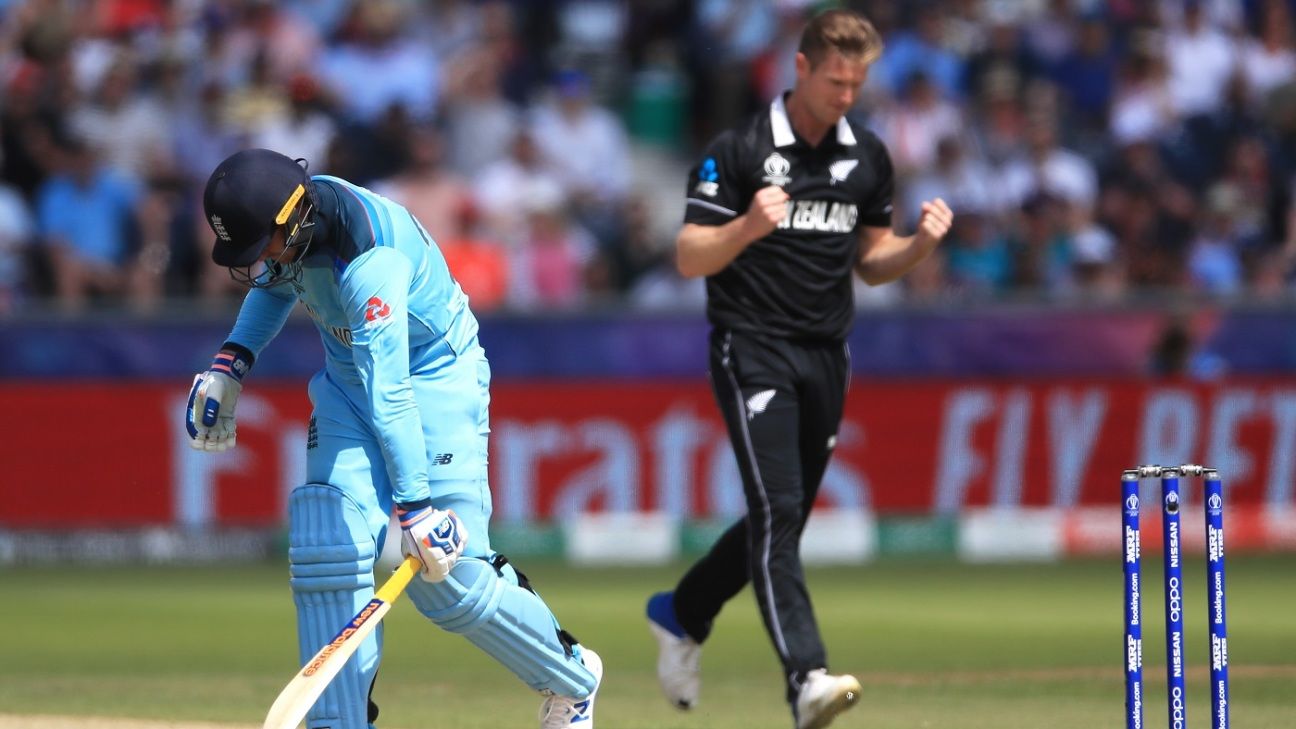
Do you ever get the sense that no-one really rates you? To judge by the line of questioning on the eve of his biggest match in four years, Kane Williamson might have been excused for thinking that he had already lost the World Cup final (again).
But, as he reflected on the truism that every under-dog has his day, New Zealand's captain was at least happy to accept that England should be seen as favourites, and that they should therefore absorb all the pressure that comes with that status.
"There's a few more here today," Williamson quipped as he took his place at pre-match press conference in the bowels of the Real Tennis court at Lord's, to be quizzed on England's strengths, New Zealand's weaknesses, and what it would do to a team of self-evident nice guys to be cast in the role of nasty party-poopers.
Everything and anything, in fact, apart from the prospect of actually going out there on Sunday and winning the damn thing on their own merit.
"We are quite keen on winning as well," Williamson protested with a smile at one stage, after another enquiry about how it would suit New Zealand to play without any expectations. "There's all different bits of pressure on anybody, whether you are favourites or not."
"Whatever dog we are, it's just important that we focus on the cricket that we want to play and we have seen over the years that anybody can beat anybody regardless of breed of dog." Williamson on the underdog tag
But broadly speaking, Williamson won't care one jot if New Zealand are being written off before a ball has been bowled. It did them no harm in their thrilling semi-final win over India, after all -they had started the second day of that rain-interrupted contest with just 211 runs on the board from 46.1 overs - with many Indian fans and pundits already planning ahead for the final.
And it's done New Zealand little harm in a World Cup history in which no side other than Australia has won more matches than them in the course of 12 tournaments and 44 years.
Addressing New Zealand's underdog status, Williamson said: "A lot of people say that on a number of occasions, which is great and I think England rightly so deserve to be favourites. Coming into this tournament from the start, they were favourites and they've been playing really good cricket.
"But whatever dog we are, it's just important that we focus on the cricket that we want to play and we have seen over the years that anybody can beat anybody regardless of breed of dog."
Anyone would think it was England who were playing in their second World Cup final in as many editions, with New Zealand the rank outsiders who were back in the big time for the first time in 27 years.
However, Williamson was also careful to play along with their lack of expectation. Asked about New Zealand's experience in that last final in 2015, when they ran into an Australian team on home soil with the bit between their teeth, he gave the impression that there had been few positive takeaways.
"There's a whole heap of different things, I suppose," he said. "We were in a different part of the world on a different surface against a different opposition, and both sides are very different from four years ago, so it's kind of hard to compare those times.
"But I prefer winning than losing," he added. "That is probably the best way to say it. Any experience that you have is an opportunity to learn and sometimes tough experiences, being on the wrong side of results, can slap you in the face and give you a glaring lesson, and if you ignore that, I don't think that is a positive thing.
"So treating both of those, the outcomes with respect and trying to learn from them to be better as a group and as an individual, I think is the best part.
"Whether having had experience in a final or not is a good thing, any final you get the opportunity to play in is a really positive thing. But at the same time, as we know, in this game nothing promises, so it does come down to putting a performance on the board that gives us the best opportunity to win."
On New Zealand's preferred game plan, of assessing the minimum total required for victory then fighting tooth-and-nail with the ball to defend it, Williamson praised his side for their adaptability, but warned that they'd have to get their calculations spot-on to see off an England team with proven matchwinners all down the order.
"It is a challenge," he said. "I think most teams expected scores to be a lot higher than what we have seen, but the reality of it is that they have been quite tough surfaces that have aged throughout the day, so trying to make those adjustments are really important.
"I think if you are focussing on what you need to do as a group and the cricket that you want to play, then making those adjustments [is possible].
"In the last game [the semi-final against India], I think both sides looked at the surface, thought it was a really good one, and thought perhaps 300 was what was going to be at play, but after 15 overs or so, we were having conversations thinking "This is really quite difficult and 300 looks like a long, long way away"
"So if we are able to perhaps achieve something a little bit more realistic on that surface, then that gives you every chance to win the matches.
"We have done it on a number of occasions but we will have to be good at doing that tomorrow (Sunday). It is a new challenge for each occasion, where we will need to make those adjustments quickly."
Tagged under
Dawid Malan lays foundation for Middlesex before Tom Helm wrecks Glamorgan
Published in
Cricket
Saturday, 13 July 2019 12:24
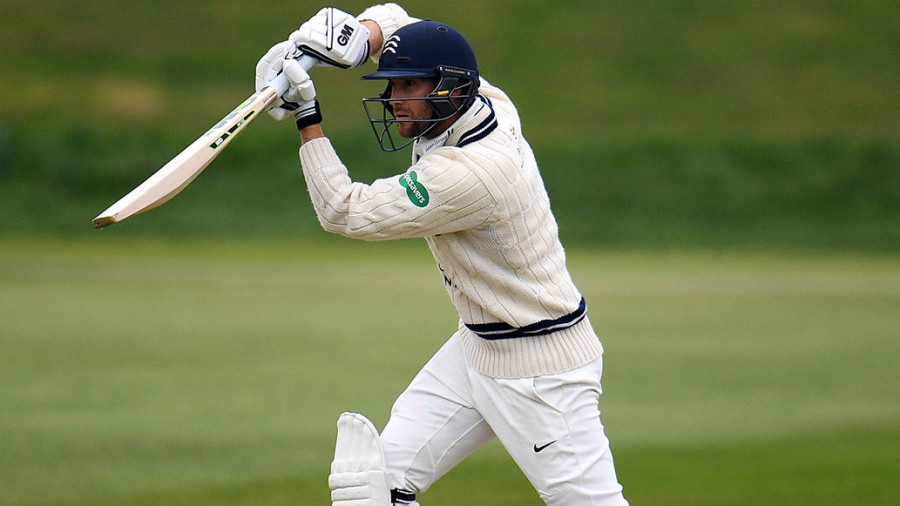
Glamorgan 25 for 4 (Helm 4-8) trail Middlesex 384 (Malan 166, Sowter 57*, Roland-Jones 54) by 359 runs
Dawid Malan, the Middlesex captain, again led from the front as Middlesex recovered from 131 for 6 to reach 384 in their first innings. Malan scored 166 of those runs - his fourth Championship hundred this summer, his third score over 150 and taking his season's tally to 933 runs.
Malan was well supported by the tail, with Toby Roland-Jones scoring a half-century and Nathan Sowter a career-best 57 not out batting at No 10.
In reply, Glamorgan were in disarray on 25 for 4 at the close on a day where the seamers obtained plenty of movement from a well grassed Sophia Gardens pitch, but apart from Michael Hogan and Lukas Carey the other Glamorgan bowlers were wayward and failed to advantage of the conditions.
Tom Helm wrecked the Glamorgan top order by taking 4 for 8 from his opening four overs, which included the wicket of Marnus Labuschagne, who has scored more than 1000 championship runs this season.
Malan did not exercise his right to field first and might have regretted his decision when Middlesex lost four wickets in the opening session. Sam Robson and Nick Gubbins both edged catches off Lukas Carey, who bowled a useful opening spell of 7-1-20-2.
Stevie Eskinazi struck 36 in quick time, but Graham Wagg, after an opening over that cost twelve runs, made amends in his second over when his second ball was deflected to wicketkeeper Chris Cooke, who took a tumbling catch.
George Scott soon departed, leg before to Michael Hogan playing no stroke, but Malan was confident from the start and, partnered by John Simpson, began his team's recovery they put on 58 for the fifth wicket.
Malan, however, should have been out on 43, when, in the first over after lunch, Carey found the edge of his bat only to see the ball dropped by David Lloyd at first slip. It proved a costly miss as Malan and Roland-Jones shared a 90-run partnership.
Roland-Jones was inches away from playing on from his first ball, but then settled to strike some lusty blows and scored 54 from 81 balls, including a six and nine fours.
There then followed the best partnership of the innings as Malan found an unlikely ally in Sowter, whose previous best was 37. Playing some unorthodox shots he raced to 50 from only 40 balls, twice carving Marchant De Lange over the short cover boundary for six as the ninth wicket pair put on 103 from just 77 balls.
After scoring 57, Sowter was struck on the hand by Wagg, and immediately left the field but, after Tim Murtagh was dismissed, he returned to resume his partnership with Malan. He did not face another ball, however, as Malan was caught on the boundary for an innings that included three sixes and 22 fours.
Glamorgan had to face nine overs at the close, but soon lost Nick Selman and night watchman Carey in Helm's second over, and when Labuschagne and Charlie Hemphrey went in the penultimate over, the follow-on figure of 235 seemed a long way away.
Tagged under
Serena mulls more events to help win 24th major
Published in
Breaking News
Saturday, 13 July 2019 10:02
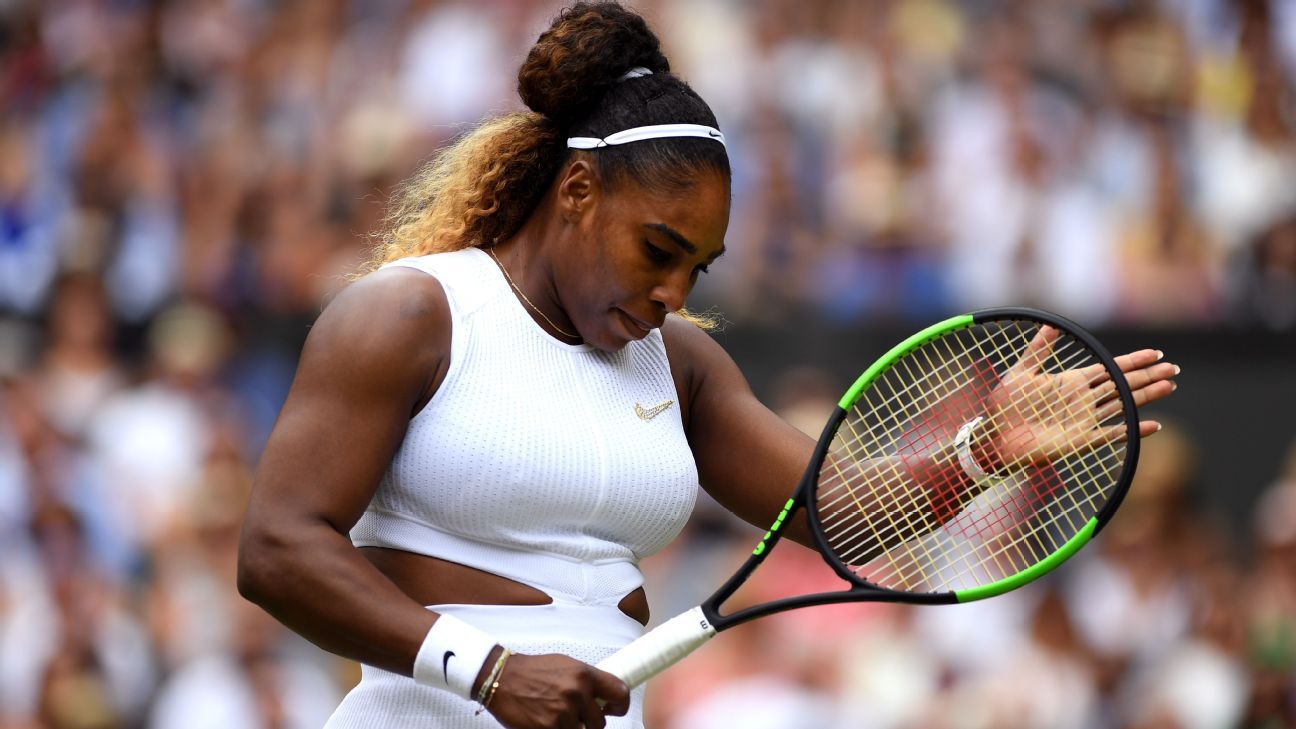
LONDON -- Serena Williams will seek to play more tournaments outside of Grand Slams to bolster her bid for major title No. 24 after losing the Wimbledon women's final to Simona Halep on Saturday.
Williams is one Grand Slam off equaling Margaret Court's record of 24, but her latest bid at Wimbledon was ended by Halep, who won 6-2, 6-2.
After the match, Williams praised Halep and did not make excuses for the comprehensive defeat. With the 24th title still proving elusive, Williams was asked what it will take for her to get over the line, having lost her past three Grand Slam finals (Wimbledon 2018, 2019 and US Open 2018).
"I just have to figure out a way to win a final," Williams said. "Maybe it is playing other finals outside of Grand Slams would be really helpful just to kind of get in the groove, so by the time I get to a Grand Slam final I'm kind of used to what to do and how to play."
Williams added: "I just think that I just have to just keep going, you know, keep trying, keep working, maybe be able to play some tournaments uninjured, like I did with this one. Just keep moving forward."
She is also trying to park thoughts of Court's record and is instead taking tournaments in isolation.
"Someone told me I shouldn't look at the records anymore," Williams said. "I should just focus on my game. That's kind of what I've been doing since I got to 18. In the meantime, I got pregnant, had a baby, so ... that definitely plays a little bit into it. I don't know. I feel like I'm just really on this journey of just doing the best that I can, playing the best that I can when I can."
The Centre Court crowd was typically vocal in its support for Williams, 37, and she recognizes the chances to see the likes of her and other tennis greats like Roger Federer are decreasing as they get older.
"I definitely felt the support and the love," Williams said. "I appreciated it. I wanted to do better. I don't think my opponent wanted me to do better today. ... But it's cool. Yeah, no matter which way you look at it, [Federer and I are] not going to be out here in the next three, four, five years. The time is now to get out there and to watch us play, I guess."
Williams came into Wimbledon having missed part of the year with a knee injury, but she said it feels "absolutely great." Her attention now turns to the hard-court season and that 24th title at the US Open. She will play in Toronto and Cincinnati before this year's US Open in August.
"I think there's a limit," Williams said of adding to her schedule. "I think if I overdo it, then that could also be a problem, as well. Especially on the hard courts. I've been on the softer surfaces, so to say. It would be interesting to see how my knee is on the hard court. I definitely don't want to do three tournaments before a Grand Slam. I think it will be fine."
Tagged under















 Phone: (800) 737. 6040
Phone: (800) 737. 6040 Fax: (800) 825 5558
Fax: (800) 825 5558 Website:
Website:  Email:
Email: 






